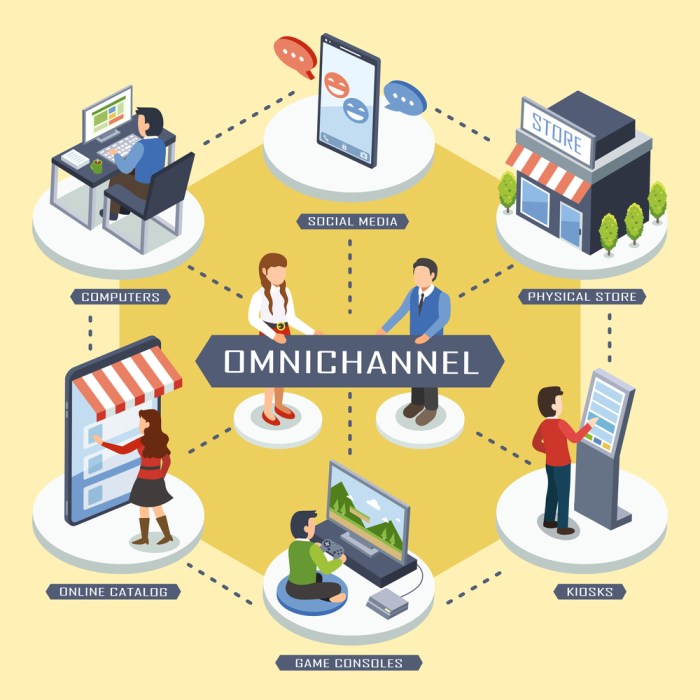A trend in retailing today is _______. – A trend in retailing today is embracing personalization. This shift towards tailored experiences has become increasingly important for businesses to succeed in the modern retail landscape. With the advent of technology and the growing demand for individualized products and services, retailers are recognizing the significance of personalizing the shopping experience to meet the unique needs and preferences of each customer.
By leveraging data analytics, artificial intelligence, and other advanced technologies, retailers can gather valuable insights into customer behavior, preferences, and purchase history. This information enables them to create highly personalized marketing campaigns, product recommendations, and loyalty programs that resonate with individual customers on a deeper level.
As a result, businesses can enhance customer engagement, drive sales, and build lasting relationships with their patrons.
Consumer Behavior
The rise of online shopping has significantly altered consumer shopping habits. Consumers now have access to a vast selection of products and services at their fingertips, leading to increased convenience, price transparency, and personalized recommendations. Retailers have responded by investing in e-commerce platforms, offering seamless omnichannel experiences, and leveraging data analytics to understand and cater to changing customer preferences.
Social Media’s Influence on Purchasing Decisions
Social media has become an integral part of the consumer decision-making process. Platforms like Instagram, TikTok, and Pinterest showcase products, provide reviews, and foster a sense of community, influencing consumer purchasing decisions. Retailers are harnessing the power of social media to engage with customers, build brand loyalty, and drive sales.
Technology Advancements: A Trend In Retailing Today Is _______.

Technological innovations are transforming the retail industry at an unprecedented pace. Artificial intelligence (AI) and machine learning algorithms are being used to personalize shopping experiences, predict demand, and optimize inventory management. Mobile technology empowers consumers to shop anytime, anywhere, and seamlessly integrates with in-store experiences.
Role of Mobile Technology in the Omnichannel Journey
Mobile devices have become indispensable tools for consumers throughout the omnichannel shopping journey. They enable shoppers to browse products, compare prices, access product reviews, and make purchases on the go. Retailers are optimizing their mobile websites and apps to provide a seamless and engaging shopping experience.
Sustainability and Ethical Practices
Consumers are increasingly demanding sustainable and ethical products, driving retailers to adopt environmentally friendly practices and ensure ethical sourcing and production. Consumers value transparency and traceability in supply chains, and retailers are responding by implementing sustainable initiatives and partnering with ethical suppliers.
Challenges and Opportunities of Ethical Sourcing and Production
Ethical sourcing and production present both challenges and opportunities for retailers. Ensuring fair labor practices, reducing environmental impact, and maintaining product quality can be complex tasks. However, retailers who prioritize ethical practices can gain competitive advantage, enhance brand reputation, and attract socially conscious consumers.
Personalized Experiences

Personalized shopping experiences are crucial for customer satisfaction and loyalty. Retailers are collecting and analyzing customer data to tailor product recommendations, offer personalized discounts, and create targeted marketing campaigns. Loyalty programs and rewards further enhance customer engagement and drive repeat purchases.
Best Practices for Personalized Shopping Experiences
Effective personalized shopping experiences require a comprehensive approach. Retailers must collect relevant customer data, segment customers based on preferences, and develop tailored strategies for each segment. Data privacy and security are also paramount considerations.
Retail Store Design and Experience

Physical retail stores continue to play a vital role in the omnichannel landscape, offering immersive and experiential environments. Retailers are reimagining store designs to create engaging spaces that showcase products, provide personalized services, and foster customer connections.
Use of Technology to Enhance the In-Store Experience, A trend in retailing today is _______.
Technology is enhancing the in-store shopping experience in numerous ways. Interactive displays, augmented reality (AR) applications, and mobile-enabled services empower customers to explore products, access product information, and make purchases seamlessly.
Detailed FAQs
What are the key benefits of personalization in retailing?
Personalized experiences can increase customer satisfaction, loyalty, and purchase frequency, leading to higher revenue and profitability for businesses.
How can retailers effectively implement personalization strategies?
Retailers can leverage customer data, utilize technology such as AI and machine learning, and create tailored marketing campaigns and product recommendations to deliver personalized experiences.
What are some examples of successful personalization initiatives in retail?
Amazon’s personalized product recommendations, Nike’s customized sneakers, and Sephora’s loyalty program are notable examples of effective personalization strategies in the retail industry.